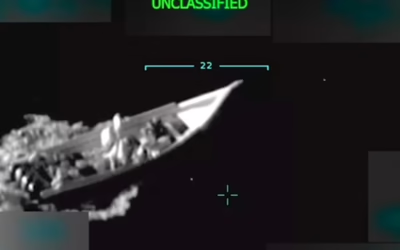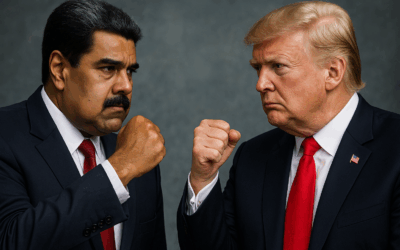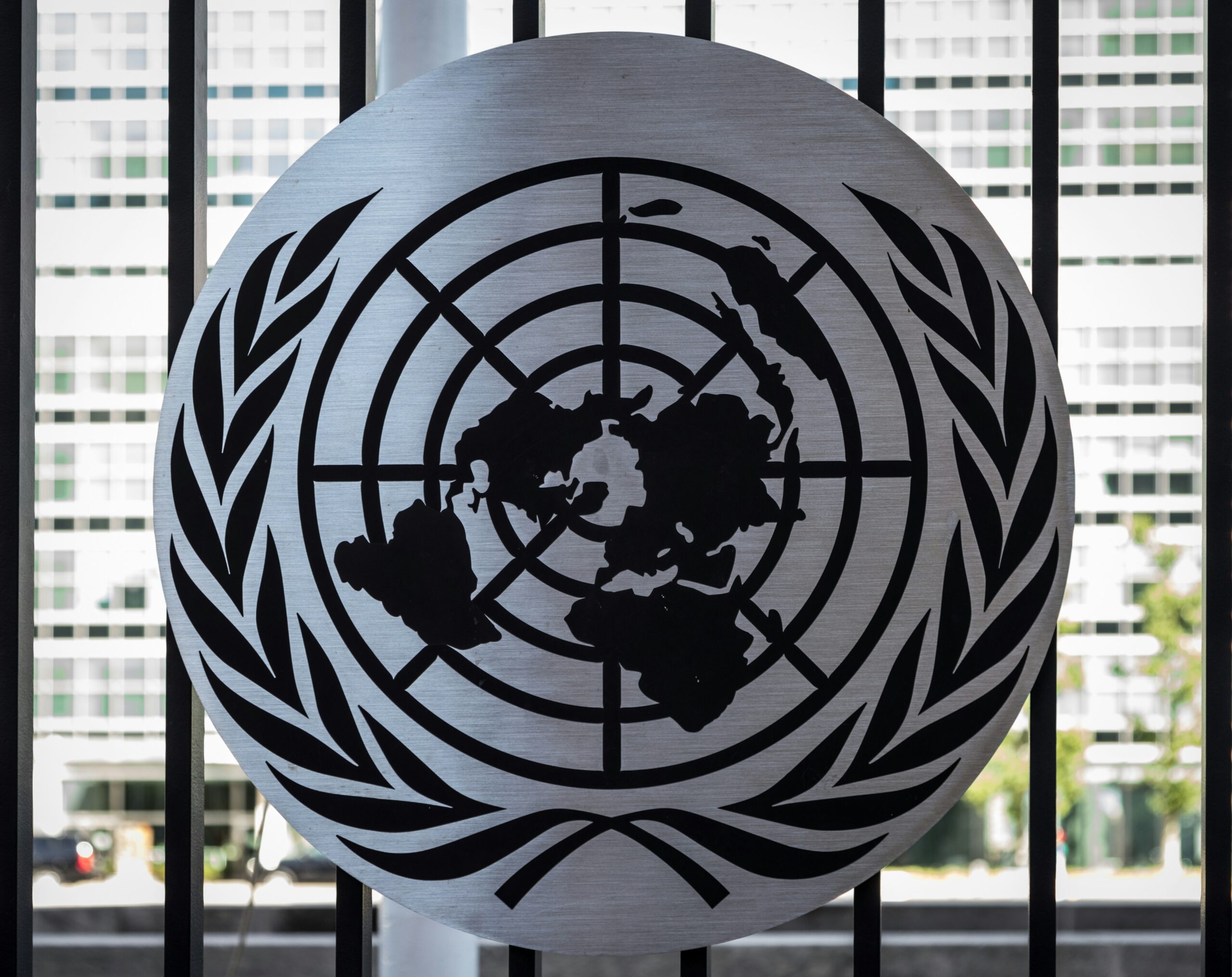Venezuela

U.S. Strike on Venezuelan Drug Cartel Boat Signals New Era
On September 2, 2025, U.S. military forces sank a Venezuelan-linked vessel in the southern Caribbean. Intelligence identified the boat as part of the Tren de Aragua gang, a transnational Venezuelan cartel network tied to narcotics, extortion, and human trafficking. Eleven smugglers were killed. Video of the strike spread quickly, showing the precision of the U.S. operation. The Venezuelan government rushed to claim the footage was fake, but U.S. officials stood by the evidence. (RELATED NEWS: U.S. Confronts Venezuela Narco-State) This was no accident. It was a deliberate blow against a cartel that has pushed poison into American communities for years. For families who have lost loved ones to fentanyl and cocaine, the message was unmistakable: Washington will no longer tolerate business as usual on the high seas. pic.twitter.com/K15IcBG3b3 — Karoline Leavitt (@PressSec) September 2, 2025 Rubio Defends the Operation The administration defended the strike as both legal and necessary. Secretary of State Marco Rubio said the narco-gangs “pose an immediate threat” to U.S. security. He pointed out that these groups are not ragtag dealers but corporate-style syndicates that traffic in drugs, weapons, and people. Rubio argued that when an imminent danger is identified, the Commander-in-Chief has the right to act. “The President is going to be on offense against drug cartels.” Secretary of State Marco Rubio says cartels are in for a rude awakening after the U.S. military destroyed a drug-laden boat from Venezuela. pic.twitter.com/s3kY4RWI8D — Fox News (@FoxNews) September 2, 2025 “We’re not going to sit back anymore and watch these people sail … like a cruise,” Rubio declared. His blunt words carried the weight of a doctrine shift—no longer waiting until cartels reach America’s shores. 💨= 🔥 — Marco Rubio (@marcorubio) September 2, 2025 More Strikes May Follow Secretary of Defense Pete Hegseth reinforced that this was just the beginning. He revealed that additional U.S. naval power has already been deployed near Venezuela, including destroyers, an amphibious assault ship, and a submarine. These assets are not symbolic. They are a clear warning to traffickers, Maduro’s regime, and anyone else who profits from America’s pain. He also said to Fox News: “I’d say we smoked a drug boat and there’s 11 narco-terrorists at the bottom of the ocean — and when other people try to do that, they’re gonna meet the same fate.” “I’d say we smoked a drug boat and there’s 11 narco-terrorists at the bottom of the ocean — and when other people try to do that, they’re gonna meet the same fate.” Pete Hegseth said the U.S. military had the “absolute” authority to strike a Venezuelan boat carrying nearly a… pic.twitter.com/pK4cdv85wu — Fox News (@FoxNews) September 5, 2025 The administration’s stance is straightforward: more strikes will come if cartels continue their deadly trade. For the first time in decades, the United States is signaling that cartel leaders will face not only prison cells but military firepower. A Shift From Past Strategies For years, Washington leaned heavily on Coast Guard interdictions and criminal prosecutions. While important, these efforts left Venezuelan cartels emboldened. Arrest one trafficker, and another steps in. Seize one shipment, and ten more slip through. This new approach changes the calculus. Instead of chasing smugglers after the fact, the U.S. is eliminating threats before they reach American soil. It is proactive, decisive, and far harder for cartels to counter. Regional Reactions Are Divided Not all neighbors welcomed the strike, though some showed strong support. Trinidad and Tobago’s prime minister praised the U.S. for taking bold action, saying the cartels are “evil” and must be stopped with force. “I, along with most of the country, am happy that the US naval deployment is having success in their mission. The pain and suffering the cartels have inflicted on our nation is immense. I have no sympathy for traffickers; the U.S. military should kill them all violently,” she said in a statement. “Our country has been ravaged by bloody violence and addiction because of the greed of the cartels. The slaughter of our people is fuelled by evil cartel traffickers.” Colombia’s President Gustave Petro, by contrast, labeled the strike an “extrajudicial killing.” But while elites argue over definitions, families across the region know who the real villains are. Cartels terrorize communities, enslave women, and funnel drugs northward. For many, America’s action is overdue. International Law Concerns Critics questioned whether the strike complied with international law. They claimed the attack occurred in international waters and targeted criminals without trial. Legal scholars debated whether the 2001 Authorization for Use of Military Force applies. Yet supporters argue that cartels have long crossed the line into terrorism. They kill without hesitation, destabilize governments, and funnel billions into criminal networks. To treat them as ordinary criminals is to ignore the reality on the ground. The Terrorist Label Labeling cartels as terrorist organizations has given the U.S. more tools to act. A month ago, the administration increased the bounty on Nicolás Maduro to $50 million and classified the Cartel of the Suns as a terrorist network. By recognizing cartel violence as a form of warfare, Washington is taking the fight seriously. Supporters point out that these groups flood American cities with fentanyl, fueling record overdoses. Treating them like terrorists reflects the scale of their crimes. Toward a Military Campaign This strike is not an isolated event. Rubio made clear it “will happen again.” The administration is preparing a sustained campaign against cartels that threaten U.S. security. Far from a one-off message, it is a standing policy: America will strike first, and strike hard. pic.twitter.com/WlLvoACd9o — Marco Rubio (@marcorubio) September 4, 2025 Venezuela Prepares for Conflict Maduro responded with bluster, mobilizing the Bolivarian Militia and declaring “maximum preparedness.” Yet his regime, weakened by sanctions and corruption, cannot match U.S. power. For years, he has sheltered cartels in exchange for profit. Now, that alliance puts him in Washington’s crosshairs. A New Era of U.S. Anti-Cartel Policy The obliteration of the Venezuelan drug boat marks more than a single battle. It represents a turning point in U.S….

U.S. Confronts Venezuela Narco-State
Venezuela, once one of the wealthiest nations in South America, is now defined by authoritarian rule, collapsing infrastructure, and the largest refugee crisis in the Western Hemisphere. Nicolás Maduro has clung to power since 2013 through repression, sham elections, and close ties to drug cartels. His regime controls the judiciary, censors the media, and puts political opponents in prison. Sounds all too familiar. For ordinary Venezuelans, the result has been catastrophic: widespread shortages of food, fuel, and medicine, and the mass flight of more than seven million citizens seeking survival abroad. (MORE NEWS: Kilmar Abrego Garcia and the Deep Immigration Divide) The United States has not remained silent. Faced with a regime tied directly to narco-trafficking, the Trump administration recently deployed naval assets in the Caribbean in what was one of the largest U.S. military operations in the region since the 1989 Panama intervention. Maduro immediately claimed the Trump administration was “seeking a regime change through military threat.” That charge fits his propaganda playbook, but it misrepresents American intentions. Pentagon spokesman Sean Parnell explained, “This requires a whole-of-government effort… the Department of Defense will undoubtedly play an important role in meeting the President’s objective to eliminate the ability of these cartels to threaten the territory, safety, and security of the United States and its people.” In short, the U.S. was not aiming to topple Maduro by force. It is protecting American citizens and reinforcing the rule of law in a region plagued by cartel violence. Newsweek is reporting that Maduro has “mobilized troops along the coast and border with Colombia.” While U.S. officials have not signaled plans for a land invasion, Maduro has mobilized troops along the coast and border with Colombia. https://t.co/VKhOLKVhfI — Newsweek (@Newsweek) September 1, 2025 China and Global Critics Misread U.S. Intentions Predictably, America’s adversaries tried to spin the move as imperialism. China’s Foreign Ministry spokesperson Mao Ning accused Washington of meddling, declaring, “We oppose the use or threat of force in international relations… under any pretext.” Beijing framed the deployment as interference in regional affairs, ignoring the obvious reality: Maduro’s Venezuela has become a safe haven for criminal cartels, which threaten America, our citizens, and our interests. National security requires decisive action beyond our borders when foreign regimes enable crime that spills into American communities. Fentanyl and cocaine do not respect borders. Neither should our response be to the cartels that traffic them. By misrepresenting America’s actions as an invasion, Beijing and Caracas both reveal their fear of U.S. strength. Critics who call this “foreign interference” fail to acknowledge that narco-terrorism is itself interference—an assault on sovereignty, law, and order. America is not building colonies in South America. It is stopping cartels from building empires of crime on our doorstep. President Trump has stated he is “prepared to use every element of American power to stop drugs from flooding in to our country.” Encouraging Democracy Through Strength Beyond military deterrence, the U.S. has pursued a strategy of sanctions and indictments that weaken Maduro’s regime from within. The Department of Justice indicted Maduro and several top officials for narcoterrorism in 2020, offering a $15 million reward for information leading to his arrest. A larger package of sanctions targeted Venezuela’s state-owned oil company PDVSA, choking off the cash that funds Maduro’s patronage networks. These measures serve two purposes: they deprive the dictatorship of resources while giving hope to Venezuela’s democratic opposition. Figures like Juan Guaidó briefly gained international recognition as legitimate representatives of the Venezuelan people, though internal divisions later weakened the movement. Still, the U.S. policy of pressure keeps alive the possibility of peaceful political change. This is an example of strength used wisely. America does not have to invade to make an impact. By raising the cost of tyranny and supporting those who resist it, Washington advances freedom without repeating the mistakes of reckless interventions. As President Ronald Reagan once said, “We maintain the peace through our strength; weakness only invites aggression” (1983 speech, Orlando, FL to the National Association of Evangelicals). That lesson holds true in Caracas just as it did in Moscow. Strength Preserves Freedom At its core, the Venezuelan crisis is not only about one dictator. It is about whether authoritarian regimes and criminal cartels can operate freely in the Western Hemisphere. The principle is straightforward: a secure America requires a secure hemisphere. If drug cartels use Venezuela as a launching pad, then America has every right—and every duty—to respond with force, sanctions, and diplomatic pressure. The Trump Administration is defending its people, and without U.S. resolve, Maduro would operate with total impunity and the cartels would expand unchecked. The vision is not reckless intervention. It is principled strength—measured, deliberate, and unapologetic. America has a right to communities free from drugs and cartel violence, and it has a duty to expose the lies that keep Maduro’s narco-state alive. Cut Through the Noise. Slice Through the Lies. Share the Truth. At The Modern Memo, we don’t tiptoe around the narrative—we swing a machete through it. The mainstream won’t say it, so we will. If you’re tired of spin, censorship, and sugar-coated headlines, help us rip the cover off stories that matter. Share this article. Wake people up. Give a voice to the truth the powerful want buried. This fight isn’t just ours—it’s yours. Join us in exposing what they won’t tell you. America needs bold truth-tellers, and that means you.

